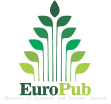Focus and Scope
The Global Media Journal – German Edition (GMJ-DE) (ISSN: 2196-4807) is an open access, double-blind peer-reviewed journal with the aim of discussing theories, reporting empirical and analytical research, presenting critical discourses, applying theories to case studies and outlining innovative research methodologies in the field of media and communication studies. In pursuing this aim, GMJ – DE encourages all high-quality, original research and analyses with a focus on inter- and transnational as well as inter- and transcultural communication processes in relation to Media Systems, Journalism, Migration & Diaspora, Development Communication, and other fields of communication and media studies from all established and emerging media and communication scholars in German-speaking countries and around the globe.
GMJ-DE is a part of the larger Global Media Journal network. Alongside the German Edition, there are several national or regional editions available. The German Edition is hosted by Freie Universität Berlin (Germany) and edited by Carola Richter (Freie Universität Berlin) and Christine Horz-Ishak (Technische Universität Köln).
Section Policies & Publication Schedule
The GMJ-DE comprises the following sections:
- Peer-reviewed articles
- Essays – showcasing innovative research methodologies or discussing theoretical approaches
- Media Practice and Research Reports – featuring reports from media practitioners or scientific media-related fieldwork
- Debates
- Graduate Section
- Book Reviews
GMJ-DE is published online semi-annually (summer and winter) and is bilingual (English and German). Submissions are accepted in both English and German. We operate on a rolling publication basis, which means that articles can be submitted at any time. We are also open to discussing guest issues or featuring special sections. For inquiries, please reach out to gmj@polsoz.fu-berlin.de
Peer Review Process
All manuscripts submitted to GMJ-DE under the section of “peer-reviewed articles” undergo a rigorous double-blind peer review process. This process ensures that both the reviewers’ and authors’ identities are concealed from each other, and vice versa, throughout the review process. To facilitate this, authors need to ensure that their manuscripts are prepared in a way that does not reveal their identity.
The editors of each issue moderate and supervise the review process. Peer reviewers are given approximately four to six weeks to complete the review. They are asked to evaluate and assess the paper for its:
- originality and relevance within the particular research area,
- convincing and coherent argumentation,
- overall paper structure,
- soundness of the scholarship and,
- whether formalities are in order.
They have four potential recommendation options:
- Accept (no need for or only minor revision)
- Revisions required (accepted if the author makes the requested revisions)
- Resubmit for review (the paper may undergo another round of peer review)
- Decline manuscript
Manuscripts may also face direct rejection by the editors (desk-reject) if they are deemed to be beyond GMJ-DE’s scope or if they are academically substandard and do not adhere to the submission guidelines.
Open Access Policy
GMJ-DE provides Diamond Open Access to its contributors and readers, based on the principle that research should be freely available to the public to support the global exchange of knowledge without payment barriers.
As a scientific journal with a focus on international and transnational communication, we believe that open-access publication would contribute to reducing information bias during times of epistemological crisis. This means:
- No Article Processing Charges (APCs) for our authors
- Access to all publications from anywhere in the world, at any time, without any subscription fees
- Our authors retain the copyright to their own works and are free to distribute them as they wish
Indexing & Archiving
This journal is currently included in the following indexing databases:
- Google Scholar
- EBSCO
- DOAJ
- BASE
- ERIHPLUS
- EuroPub
- Academia
- Ulrich’s Web
All published articles are assigned to a Digital Object Identifier (DOI) through CrossRef by the Digital Library Thüringen (dbt). These articles are permanently archived and accessible in the dbt database, as well as on the GMJ-DE website, provided as PDF files under the CCBY 4.0 license.








